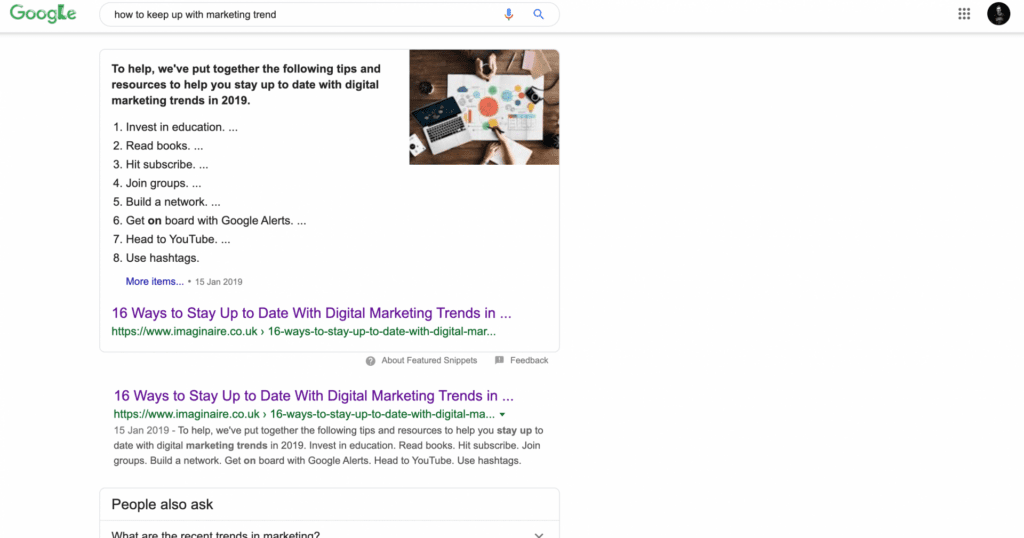Pay per click (PPC) advertising is a way of connecting people using search engines with your business, through creating targeted adverts.
The idea is to generate sales for your business, as when people key in a certain search term, they will be presented with your ad that will link them to your website. For example, say you own a building company, you could create an ad so that every time someone typed in “builders in Dubai”, your ad is displayed which will take people to your website when they click on it.
The average campaign costs between 66p and £1.32, which doesn’t sound like a lot, however, when it comes to analysing your ROI (return on investment), that figure can soon add up if the advert isn’t converting into actual sales. Whether that link click generates an actual sale for you or not, it will still eat into your PPC budget. So, the key is to ensure as many clicks convert into actual sales as possible to maximise your ROI.
When it comes to improving your ROI in other areas of your business, you might have it sorted. For example, negotiating a better deal with suppliers to increase your profit margins. When it comes to ROI from your PPC advertising however, the techniques are a little more specific.
So, if you are looking to increase your ROI on your PPC advertising without increasing your overall spend, here is everything you need to know.
How to calculate ROI

First things first, before you can look to boost your ROI, it’s important to understand what ROI actually entails.
Let’s say you own a clothing store in Dubai. You sell a suit that costs you £100 to produce, which you sell at £200. Following your Google Ads PPC campaign, you sell 6 suits. This would give you total sales of £1,200. Your Google Ads spend was £200, which would give you a ROI of 50% for that month. In essence, your ROI is the money left over once all other expenses have been deducted.
Consider your keywords
We all know that keywords are essential to link searchers with your content, but did you know there’s such a thing as too many keywords? More specifically, using too many keywords in a single ad can actually reduce the effectiveness of your campaign.
For example, let’s say you own a travel company. If your keywords in one ad cover everything from a ski trip in The Alps to family trips to Disney World – the number of keywords needed to cover everything you offer isn’t going to be directly related to your ad or indeed what your customers are specifically searching for.
However, by streamlining your keywords, you will make your ad more specific increasing the Quality Score, therefore, your ROI too.
Think of it like social media hashtags. When too many are used they become less relevant to the initial image or message. When searching for a particular hashtag, you become frustrated as the images are not relevant to what you are looking for. You aren’t likely to follow, like or subscribe, because what you’ve landed on is completely unrelated.
The same principle applies with PPC ads, in that the keywords need to be relevant to generate tangible leads, therefore promoting ROI. If the keywords are too broad, it will cost you money for users to click through to your website, but they are unlikely to actually make a sale because the content is misleading and not what they are looking for. This practice will hamper your ROI, so it’s important to consult your analytic tools to check each keyword is pulling in actual leads.
Optimise your landing page

Thought all the effort needed to be concentrated on your ad alone? Think again! It’s an easy mistake to make, but in reality, the place in which users click through to (your website) is just as important as where they came from (your PPC ad).
If users are landing on a page that’s not relevant, is poorly displayed or worse still, doesn’t give the option for them to make a sale with you – no matter how good your PPC campaign is, the ROI will be severely hampered. Therefore, you need to make sure your landing page makes it as easy as possible for a transaction to take place, giving your customers all the information and tools they need to do what they came for… buy your product!
Once again, it’s a very good idea to check your website analytics daily and compile reports to determine what’s working and what’s not. You could even try software such as Crazy Egg, which will tell you how far people are scrolling down your webpage before they click off.
The more you are on the pulse with how your landing page is performing, the more likely it is your ROI will skyrocket.
keep both hands on the wheel
With PPC, it’s really easy to go into cruise control and let Google (or whatever PPC platform you use) select the budget and keywords for you. This is a method that sees so many businesses throw money down the drain. After all, if your ads are not pulling in actual sales the ROI is going to be very poor.
If you’re new to PPC advertising or have found your current ads aren’t performing as hoped (and you’ve followed the above steps!), you might want to think about running some test ads. Over the course of a week to a month, run some PPC campaigns with a very small budget, with the keywords you think are going to work best.
From these test ads, you can then determine whether these are generating actual leads before you put a big spend on your campaign. Alongside this, you should continue to monitor your campaigns and never go for automated options. After all, Google is not running your business… you are! It’s really important to stay in control, ensuring your budget is actually delivering ROI.
need a little help?
If you are struggling with improving your PPC campaign ROI without increasing your overall spend, you are not alone! It can be really tricky to get to grips with exactly what the problem is that’s causing your ROI to be so low.
Imaginaire can help! Call us today on 0115 971 8908 to learn more. we’re a Dubai PPC agency with years of experience, specially in the engineering, construction, jewellery, retail and luxury e-commerce sectors.

